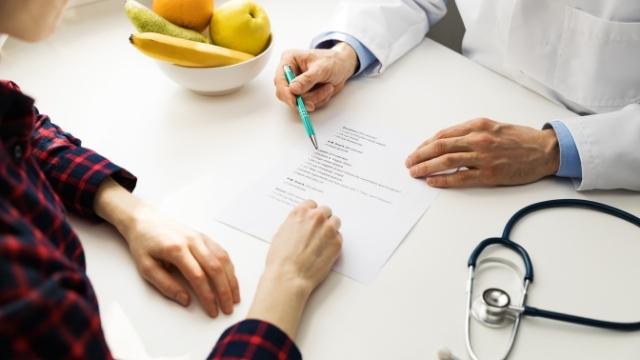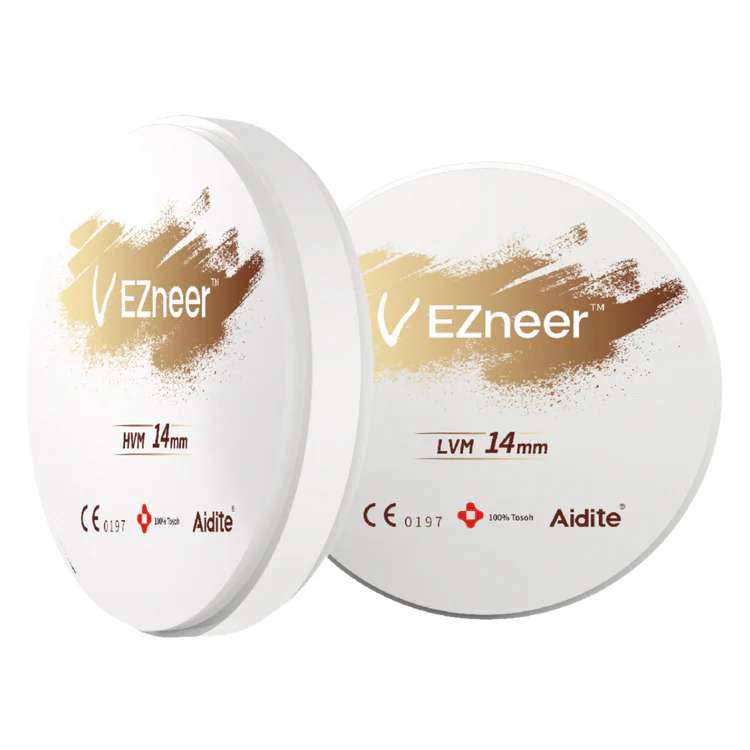It’s alarming when chest hurts after eating. While many automatically think of heart issues, chest pain post-meal can actually stem from a wide range of causes—some minor, others more concerning. This article dives into the seven most common reasons for chest discomfort after eating, how to treat them, and when to seek medical help. Understanding these factors can help you take proactive steps toward relief and prevent future episodes of pain.
Introduction
When your chest hurts after eating, it can leave you feeling unsettled and anxious, especially if you’re unsure of the cause. While heart-related issues may be the first thing that comes to mind, several gastrointestinal and other conditions can also lead to post-meal chest pain. Knowing when to take it seriously and how to alleviate the discomfort can make a significant difference in your health and peace of mind. In this article, we’ll explore why your chest might hurt after eating, from common digestive conditions to more serious concerns.
1. Acid Reflux (GERD): The Usual Suspect
Acid reflux, or gastroesophageal reflux disease (GERD), is one of the most common reasons for chest pain after eating. This occurs when stomach acid flows back up into your esophagus, causing irritation and discomfort, often mistaken for heart pain.
Symptoms of Acid Reflux:
- Burning sensation in the chest (heartburn)
- Sour or bitter taste in the mouth
- Chest discomfort, especially after eating acidic or spicy foods
- Burping and regurgitation of food
How to Manage Acid Reflux:
- Avoid trigger foods such as caffeine, chocolate, fatty foods, and acidic drinks.
- Eat smaller meals more frequently to prevent pressure buildup in your stomach.
- Stay upright for at least 30 minutes after eating to prevent acid from rising.
- Over-the-counter antacids or prescribed proton pump inhibitors (PPIs) can help.
Preventing Acid Reflux:
- Raise the head of your bed by a few inches if you frequently experience nighttime heartburn.
- Avoid lying down right after meals.
- Cut back on alcohol and quit smoking.
2. Esophageal Spasms: Sudden, Sharp Chest Pain
Esophageal spasms are involuntary contractions of the esophagus, which can be triggered by eating or drinking. These spasms can cause sharp, severe chest pain that may resemble a heart attack, making it particularly concerning.
Symptoms of Esophageal Spasms:
- Sudden, severe chest pain
- Difficulty swallowing
- Feeling of food being stuck in your throat
Treatment for Esophageal Spasms:
- Medications to relax the esophageal muscles
- Dietary changes (avoiding very hot or cold foods)
- Stress management techniques, as stress can trigger spasms
Preventing Esophageal Spasms:
- Chew food slowly and thoroughly before swallowing.
- Avoid extreme temperatures in food or drinks.
- Incorporate relaxation exercises, like deep breathing or yoga, into your routine.
3. Heart Issues: Angina and Heart Attack Risks
While many cases of chest pain after eating are related to digestive issues, sometimes it can indicate a heart problem like angina or, in rare cases, a heart attack. Angina is chest pain caused by reduced blood flow to the heart, and it can be triggered by physical activity, stress, or even eating a large meal.
Symptoms of Heart-Related Chest Pain:
- Pressure or tightness in the chest
- Pain that spreads to the arm, neck, jaw, or back
- Shortness of breath
- Nausea or lightheadedness
When to Seek Immediate Medical Help:
- If chest pain is severe, persistent, or accompanied by other symptoms like shortness of breath or pain radiating to other areas, you should seek emergency medical attention.
- Call 911 if you suspect you’re having a heart attack.
Preventing Heart-Related Chest Pain:
- Maintain a heart-healthy diet low in saturated fats and cholesterol.
- Exercise regularly and manage stress.
- See a healthcare provider for regular heart check-ups, especially if you have a history of heart disease.
4. Gallbladder Problems: Pain After Fatty Meals
Your gallbladder helps digest fats, but when something goes wrong—such as the development of gallstones or inflammation (cholecystitis)—you may feel pain after eating, especially if your meal was high in fat. The pain often starts in the upper right abdomen and may radiate to your chest.
Symptoms of Gallbladder Issues:
- Sharp, stabbing pain in the upper right abdomen or chest after eating fatty foods
- Nausea or vomiting
- Pain radiating to the back or shoulder
Treatment for Gallbladder Issues:
- Dietary adjustments to reduce fat intake
- Medications to dissolve gallstones or manage symptoms
- Surgery to remove the gallbladder in severe cases
Preventing Gallbladder Attacks:
- Follow a low-fat diet.
- Avoid large, high-fat meals that can trigger an attack.
- Maintain a healthy weight and avoid rapid weight loss.
5. Hiatal Hernia: When Part of Your Stomach Pushes Up
A hiatal hernia occurs when part of the stomach pushes through the diaphragm into the chest cavity. This can cause chest pain after eating, particularly if large meals are consumed. In addition, it can lead to acid reflux or GERD, which contributes to the pain.
Symptoms of a Hiatal Hernia:
- Chest pain or discomfort, especially when bending over or lying down after eating
- Heartburn
- Difficulty swallowing
Treatment for Hiatal Hernia:
- Avoid large meals and eating close to bedtime.
- Elevate the head of your bed if you experience nighttime symptoms.
- Surgery may be necessary in severe cases.
Preventing Hiatal Hernia Discomfort:
- Eat smaller meals more frequently.
- Avoid foods that trigger acid reflux.
- Don’t lie down right after eating.
6. Food Allergies and Intolerances
If you notice that your chest hurts after eating certain foods, it may be due to a food allergy or intolerance. Allergies can cause a range of symptoms, from mild discomfort to more severe reactions, including chest pain.
Symptoms of Food Allergies:
- Chest pain or tightness
- Hives or rash
- Swelling of the face, lips, or tongue
- Difficulty breathing
Managing Food Allergies:
- Identify and avoid trigger foods through testing and dietary tracking.
- Carry an epinephrine auto-injector if you have a known severe food allergy.
- Consider seeing a specialist for food allergy testing and management.
Preventing Food Intolerance-Related Chest Pain:
- Keep a food diary to identify which foods may be causing discomfort.
- Experiment with eliminating common allergens like dairy, gluten, or soy from your diet.
7. Peptic Ulcers: Sores That Cause Pain After Eating
Peptic ulcers are sores in the stomach lining or the upper part of the small intestine, which can cause chest pain, especially after eating. The pain usually worsens when stomach acid irritates the ulcer, leading to discomfort in the abdomen and chest.
Symptoms of Peptic Ulcers:
- Burning pain in the abdomen or chest
- Bloating and indigestion
- Nausea
Treatment for Peptic Ulcers:
- Medications to reduce stomach acid
- Antibiotics if the ulcer is caused by an H. pylori infection
- Avoiding NSAIDs, alcohol, and smoking, which can worsen ulcers
Preventing Peptic Ulcers:
- Limit alcohol and avoid smoking.
- Take medications as prescribed to reduce acid production.
- Manage stress, as it can exacerbate ulcer symptoms.
Diagnosing Chest Pain After Eating
If your chest hurts after eating and you’re unsure of the cause, it’s essential to consult with a healthcare provider. They may perform several tests to rule out serious conditions and identify the underlying cause.
Common Diagnostic Tests:
- Electrocardiogram (ECG): To rule out heart-related issues.
- Endoscopy: To check for GERD, ulcers, or other digestive problems.
- Ultrasound: To identify gallbladder or liver problems.
- Esophageal pH Monitoring: To test for acid reflux.
- Blood Tests: To rule out infections or inflammation.
FAQs About Chest Hurts After Eating
1. Is chest pain after eating a sign of a heart attack?
While chest pain after eating can sometimes indicate heart issues, it’s often related to digestive problems like acid reflux or gallbladder issues. However, if your chest pain is severe, persistent, or accompanied by symptoms like shortness of breath, dizziness, or pain radiating to your arm or jaw, seek immediate medical help.
2. What foods trigger chest pain after eating?
Foods that are spicy, fatty, or acidic can trigger acid reflux or gallbladder pain, leading to chest discomfort. Additionally, food allergies or intolerances can also cause chest pain.
3. How can I prevent chest pain after meals?
To prevent chest pain after eating, avoid large, heavy meals, steer clear of trigger foods, stay upright after eating, and manage stress. If you have a known digestive condition, follow your doctor’s recommendations for managing symptoms.
4. When should I see a doctor about chest pain after eating?
If your chest pain is frequent, severe, or accompanied by other concerning symptoms, you should see a doctor. They can help determine if the cause is related to your heart, digestive system, or another health condition.
5. Can stress cause chest pain after eating?
Yes, stress can exacerbate conditions like acid reflux and esophageal spasms, leading to chest pain after eating. Managing stress through relaxation techniques can help reduce this risk.
For more blogs visit kinkedpress.com



